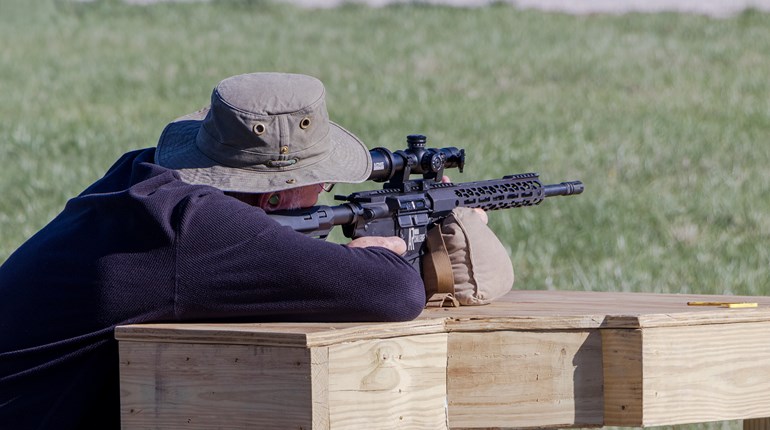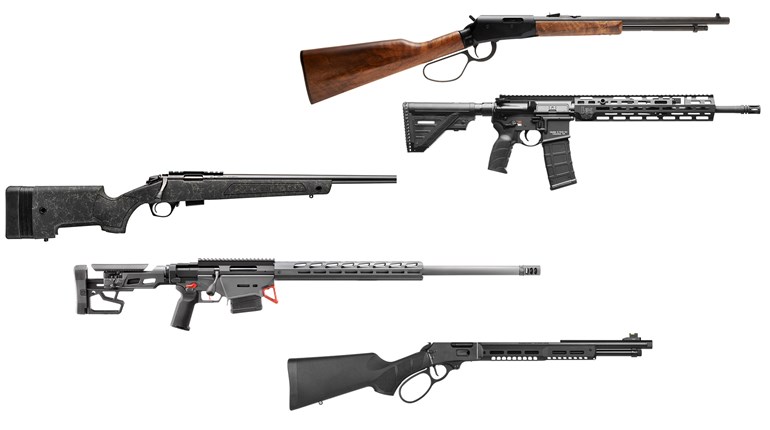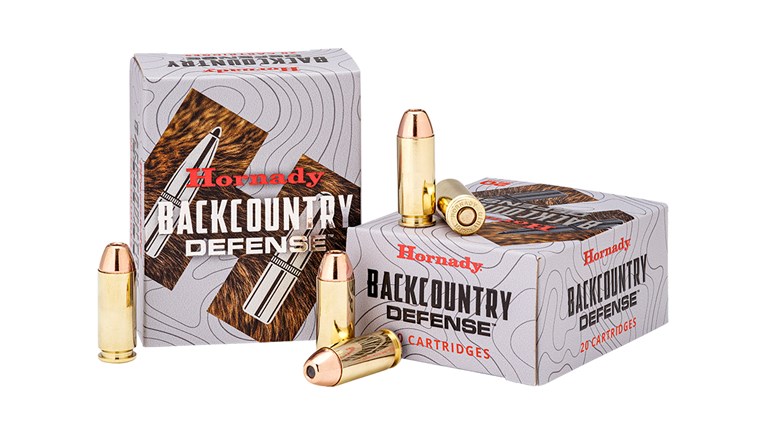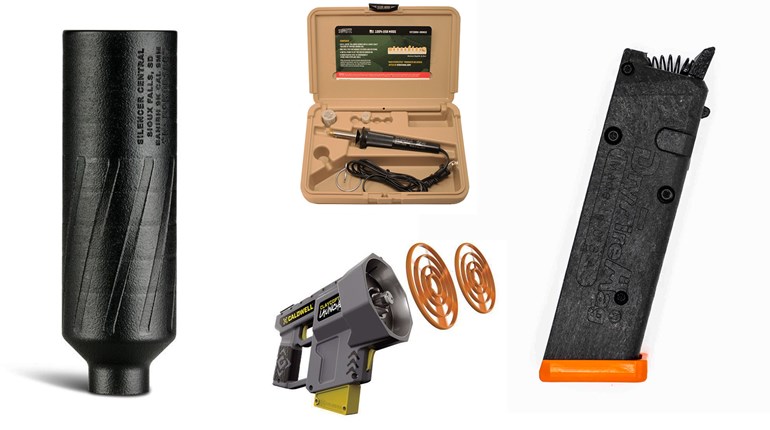
Since the 9 mm vs. .45 ACP has been solved to everyone's satisfaction, it’s time to settle another big controversy.
America is the country of iconic rifles. The American Long Rifle has the name right in it. Then there was the Spencer Repeating Rifle, the Winchester lever-action, and the M1903 Springfield to name a few. However, two stand out as candidates for the real “America’s Rifle.” Those would be the M1 Garand and the AR-15.
As a quick background, the M1 Garand (pronounced “geh-rund” more or less) is technically named the “U.S. Rifle, Caliber .30, M1.” But saying “Garand” or “M1 Garand” saves a lot of valuable breath, so that’s how most people refer to it. The basic design dates back to Garand’s T3 rifle tested back in 1926. After more testing, tinkering and a caliber switch from .30 to .276 and back to .30 again, the then current T1E2 rifle became the M1 Garand. By 1936, the Army officially adopted it for broad-scale service.
As for the AR-15, most know that the “AR” part doesn’t stand for “Assault Rifle” or even “Apoplectic Ruin.” It’s the model designation of the company that originally built it - Armalite. As you can likely guess, it was the company's 15th model. Yep, it’s that simple. After a series of other unrelated rifles, Eugene Stoner came up with the AR-10, which was more or less a bigger version of the AR-15 we know and love today. The Zoomies decided it was pretty cool and by 1964 the AR-15 (or rather the AR-15's select-fire cousin, the M16) had entered official military service. By 1969, it was the standard-issue rifle of the U.S. Military, taking the place (for the most part) of the M14.
To solve the question of which is “America’s Rifle,” we decided to set up a panel discussion staffed by three gun writers of questionable repute. Please welcome me, myself and I. Hey, the budget isn’t infinite around here so sometimes we have to work with what we have. Deal with it, OK?
M1 Garand vs. AR-15: Which is America's Rifle?
Me: So if we're brutally American about this comparison, right off the bat, the Garand has a big strike against it. Its inventor was, umm, Canadian. No one doubts his patriotism, but are we really going to award the title of “America’s Rifle” to one whose creator was born in Quebec? Worse yet, his first name was Jean. Come on, that’s bordering dangerously close to French! Sure, later he anglicized it to “John,” but still.
Myself: Well not to pile on, but Eugene Stoner, the creator of the AR, was born in the great state of Indiana. Considering its the birth state of James Dean, Ernie Pyle and Wilbur Wright, that’s about as American as you can get. Just sayin’.
I: Here’s the thing on the M1 Garand being America’s Rifle. If Garand had never invented it and we’d never fielded it during World War II, then we might not be America at all. Maybe we’d all be living under the rule of Japan, Germany or perhaps Lichtenstein. I’m pretty sure some famous guy in the war said it was the greatest human accomplishment since Shake Weights - or something like that.
Me: Oh, please. You’re not going to drag out that General George Patton quote, are you? As I recall, he said, “In my opinion, the M1 rifle is the greatest battle implement ever devised.” Granted, that’s a much stronger endorsement than Samuel L. Jackson’s recent pitches for credit cards, but wars depend on a lot more than just rifles. Sure, the M1 Garand was great against all those bolt-action rifles with hard consonants in their names, but all those tanks, ships and planes made a difference, too.
Myself: So you’re going to defend the AR-15 as America’s Rifle? If it were that great, we would have been in and out of Vietnam in a week and a half, and everyone who carried one would have been able to fire more than three rounds between jams.
I: The original M16 got a bad rap for reliability, but that was mainly because some government bean counter changed the powder spec for the ammo without telling anyone. And consider this. The AR-15 is so awesome that the entire U.S. Military is standardized on one its many variants and has purchased 10 million or so over the past 50 years. In addition to that, another 5-10 million (or more) commercial AR-15 rifles are privately owned. All those Americans can't be wrong about which is America's Rifle.
Me: Considering that the M1 Garand was originally built just for the military, its production numbers aren’t too shabby either. Just during World War II, Springfield Armory and Winchester made a combined 4,040,802 M1s. Yes, I counted. During January 1944, Springfield Armory was cranking out 164 M1 Garands per hour. And after the war, we made another 1.4 million. And that was back in the day when there was no electricity or running water and factory workers had to walk to the plant uphill both ways. That’s American production, baby! Beat that!
Myself: Oh yeah? For the past 10 years, every hour of every day, another 164 billion new companies started making custom AR-15 rifles. I’m pretty sure that figure is accurate based on the number of ads I saw.
I: Production numbers are one thing, but if a gun is going to be named America’s Rifle, then it has to be big. Everything in America is big. The ammunition used by the M1 Garand is more than twice as powerful as those puny cartridges used by the AR-15. How about 2,600 foot-pounds of muzzle energy versus just 1,200 or so for the .223 Rem. cartridge? What do you have to say about that?
Me: Oh, you want to play math games? Fine, we’ll play math games. That “puny” AR-15 carries 30 rounds per magazine instead of just eight in the Garand. Heck, even the original models, 50 years ago, used 20-round magazines. So let’s add up all the muzzle energy per magazine. The AR-15, with its 30 rounds, packs 38,704 foot-pounds compared to a measly 20,893 for the Garand. Jealous?
Myself: Hey, if everything were about raw energy instead of practicality, then people would buy Tesla cars without all those massive subsidies from the government. There’s another factor to consider, and that’s the number of shots you get per pound. M2 ammo for the M1 Garand might be twice as powerful, but it’s also twice as heavy. For every ten pounds of ammo you lug around, you get just 173 rounds of M2 compared to 393 rounds of .223 / 5.56. It’s something to think about. When the Zombies come to America, I’m choosing capacity.
Me: I have it on good authority that using an M1 Garand in combat carries a 312-percent chance of serious injury or death. Why? That's because when the magazine runs dry, it’s ejected with an audible “ping” sound which alerts all enemies within a seven-mile radius that you’re out of ammo and vulnerable to attack. I read on the internet that it makes a special kind of noise that can be heard above the din of full-on battle because the sound is louder than artillery, tanks, grenades and all of the surrounding gunfire.
I: OK, so there are World War II stories of the enemy waiting to hear that “ping” noise before attacking. For every one of those, there’s another story about GIs deliberately tossing empty en-bloc clips on the ground to fake it. I guess if it was a one-on-one duel in a quiet soundstage, with no other shooting nearby, it could be plausible, but that’s not a strike against the M1 Garand.
Myself: Speaking of clips, we have the M1 Garand to thank for the never-ending clip versus magazine terminology debate. Calling the M1's magazine an "en-bloc clip" really fouled us up. Do you guys have any idea of how many perfectly good electrons have been wasted on that discussion? Think about how many people still call pistol and AR magazines “clips.” It’s a travesty of ballistic etymology.
Me: OK, so I get your frustration on people using the wrong terminology, but you have to admit there’s an upside. It gives people like us reasons to demonstrate our superiority by pretending that we don’t understand when someone is talking about a “clip” for their Glock. Better yet, it provides a great opportunity to correct them in a publicly humiliating way. That’s worth something, isn’t it?
So there you have it. The answer couldn’t be more clear on which earns the coveted title of “America’s Rifle.”


































